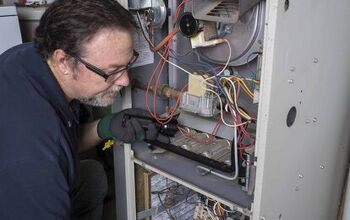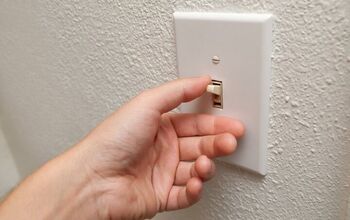What Is A Home Inspection Contingency?

Buying a home is likely the most significant purchase you’ll make in your lifetime. It’s also a considerable investment and, for many, the place they want to set down roots and start a family. For these reasons, it makes sense to want a home inspection contingency in your home-buying contract.
A home inspection contingency grants a buyer the right to have a home inspection within a specific period. If the inspection returns any necessary repairs or issues, the buyer can ask sellers to address them. Sellers have the option to make repairs, reduce the purchase price, or refuse. If the seller refuses, the buyer has the right to walk away from the deal.
Placing a home inspection contingency in your real estate contract can protect you as a buyer. But do you have to have one? Will sellers more likely decline your offer if they see an inspection contingency is a part of your deal?
What Is In A Home Inspection Contingency?
A real estate agent will most likely always advise you to add a home inspection contingency into your contract. This contingency is also sometimes referred to as a due diligence contingency. This precautionary measure is typically just a few extra lines in your contact that might look something like this:
Home Inspection Period — This contract is contingent until 8 pm, 7 days after the Home Inspection Deadline, upon inspection of the property by a professional, insured inspector. The inspection is at the purchaser’s discretion and expense.
Basically, it means the buyer can make changes or void the contract until 8 pm, 7 days after the specified home inspection deadline.
Utilities In Service
Other information within this contingency will typically call for the seller to have utilities in service during the inspection period. The contract will also specify an extension beyond the home inspection deadline if, for some reason, the utilities are not in service.
The extension will typically extend for a specified number of days past when the sellers give notice that the utilities are available.
Purchaser’s Rights
A home inspection contingency will also include the buyer’s rights after inspection. If the inspection returns any unsatisfactory news, the contingency allows the purchaser to present the report to the seller.
Typically, the buyer has until the home inspection deadline period to do so. They must also present a list of what they want the sellers to do to fix the situation and move forward with the deal.
If the buyer makes requests within the inspection period and the seller refuses, the buyer can void the contract. Or some contingencies will also state that the purchaser can choose to walk away at that time and cancel the contract. The contingency will also usually make clear that, in this case, the purchaser receives their earnest money back.
Seller’s Rights
The contingency will also have verbiage in place to keep things on track. It might specify that the seller has the right to decline the requested repairs in exchange for lowering the offer price. Or that the seller can refuse to make adjustments, understanding that the buyer can walk away.
Sellers might also include something in the contingency that ensures the purchaser doesn’t use a personal connection for the inspection. This extra phrasing can avoid conflict of interest issues and the sellers feeling like they’re at a disadvantage.
What Happens If The Inspection Contingency Expires?
Home inspection periods are not indefinite. They’re usually one to two weeks, meaning buyers have that long to have the inspection.
It can take some time to schedule an inspection. Therefore, it’s best to call a company within 24 hours of signing your purchase agreement. But what happens if the inspection contingency expires?
The contract should include what happens if the purchaser fails to obtain an inspection within the deadline. It should also specify that the purchaser must provide a report and make requests within this time.
Failure to do so before the deadline will void the contingency, and the contract remains in force. Beyond the deadline, the purchaser can’t ask for any changes, repairs, etc., and is locked into the contract.
Cost-of-Repair Contingency
A home inspection contingency might also sometimes include a cost-of-repair contingency. This clause usually places a maximum dollar amount that repairs must reach before buyers can terminate the contract. This amount is usually about 1 to 2 percent of the sales price.
However, both parties can decide on any terms they desire. What’s important is that everyone is clear and in agreement on the contract terms before signing.
A Final Walkthrough
A final walkthrough of a home before you buy is not required by law. However, you can put it in your contract, whether as part of a home inspection contingency or on its own. It gives buyers the opportunity to see the house once more before they finalize the deal to ensure things are how they are supposed to be.
Do You Need A Home Inspection Contingency When You Buy A House?
When you’re house hunting, you can start to get overwhelmed by all of the choices. You want to find a house that suits your needs, preferably in your desired location, and of course, within your budget. And in a perfect world, you hope for a house free from problems or complications.
But, as you well know, the world’s not perfect, and houses have histories, which means they can have hidden issues. If your agent shows you a home and you fall in love with it, jumping in with a stellar, contingency-free offer can be tempting.
But, it’s important to remember that what you see isn’t always what you get. So, imagine you buy a house, and you don’t worry about a home inspection contingency. Then, after you move in, you uncover plumbing issues and a leaky roof.
Before you know it, you’re facing thousands in repairs, and your dream castle is turning into your nightmare. You can avoid these costly and stressful surprises with a home inspection.
If You’re Selling, Should You Accept A Home Inspection Contingency Offer?
A home inspection contingency shouldn’t send up red flags to sellers. This contingency is a relatively common one for purchasers to include in real estate contracts.
You might have some more wiggle room to avoid an inspection contingency in certain situations. For example, you don’t care what you get for the house; you just want it off your hands quickly. Or it’s a seller’s market, and you have multiple buyers in a bidding war.
Otherwise, you probably shouldn’t toss out offers because they include an inspection contingency. If you’re really worried that an inspection could ruin the deal, ask yourself why.
If it’s because you’re aware of problems, you’re supposed to disclose anything you know about the house anyway. So, keep that in mind.
If you’re legitimately worried about hidden issues, you could always have an inspection performed yourself before you list your home. This step allows you to tackle surprises before they become a major roadblock to selling.
Summary
A home inspection contingency is a common addition to most real estate contracts. They simply specify a period that the buyer has to have an inspection and request changes. If the inspection returns issues, the buyer can ask the seller to fix them, lower the purchase price, or can void the contract.
The contingency expires if the buyer fails to obtain an inspection or provide a report with requests within the inspection period. Then, the contract moves forward with no inspection contingency in place.
Adding a home inspection contingency into your purchase agreement protects you from costly repairs later. It’s a wise move that can help you make a better choice regarding one of the biggest purchases you’ll ever make.

Stacy Randall is a wife, mother, and freelance writer from NOLA that has always had a love for DIY projects, home organization, and making spaces beautiful. Together with her husband, she has been spending the last several years lovingly renovating her grandparent's former home, making it their own and learning a lot about life along the way.
More by Stacy Randall






















![Standard Dining Room Table Dimensions [for 4, 6, 8, 10 and 12 People]](https://cdn-fastly.upgradedhome.com/media/2023/07/31/9074335/standard-dining-room-table-dimensions-for-4-6-8-10-and-12-people.jpg?size=350x220)




